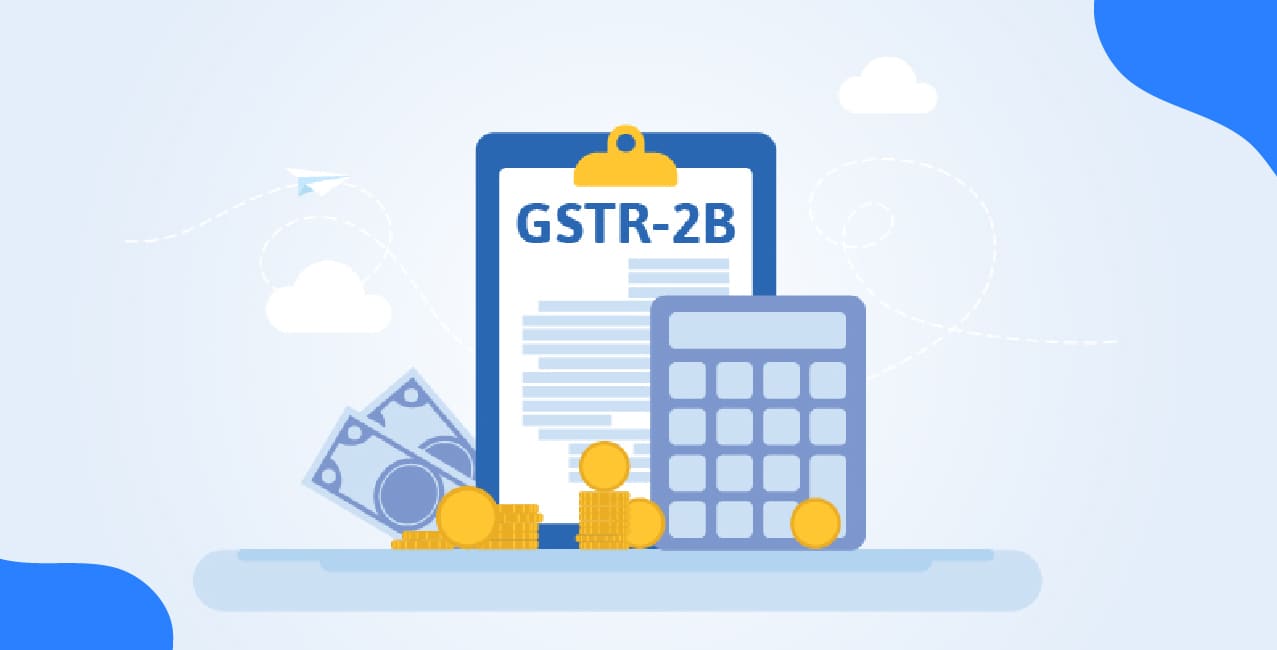GST on Brokerage – Updated Rate & Complete Guide

Check Your Loan Eligibility Now
By continuing, you agree to LoansJagat's Credit Report Terms of Use, Terms and Conditions, Privacy Policy, and authorize contact via Call, SMS, Email, or WhatsApp
Key Takeaways
- GST on brokerage adds 18% tax on all commissions or fees charged by brokers.
- Businesses can claim Input Tax Credit (ITC) on GST paid for brokerage services used in their operations.
- Proper GST compliance helps both brokers and clients avoid penalties.
GST on brokerage is the tax levied on commissions or fees charged by brokers for their services. It applies at a standard rate of 18% and ensures transparency and legal compliance in all brokerage transactions.
For example, Rajesh, a stock investor, paid ₹20,000 as brokerage to his broker for executing trades. With GST on brokerage at 18%, he had to pay an additional ₹3,600 as tax. This GST is recorded separately, and if Rajesh were a business, he could even claim it as Input Tax Credit, reducing his overall tax liability.
In this blog, we will explore how GST on brokerage impacts different sectors, how businesses can claim ITC, and the overall benefits and obligations for both brokers and their clients.
Different Categories of Brokerage with GST Rates
In India, brokerage services are subject to GST at 18%. Generally, the supplier of services pays GST. However, in certain cases, the recipient of the service must pay under the Reverse Charge Mechanism (RCM). This often applies to brokers or commission agents serving banks and financial institutions.
The table below highlights different types of brokerage services in India, with examples, their GST rates, and the applicable payment mechanisms.
GST at 18% applies to all brokerage services, but when the client is a bank or financial institution, the reverse charge mechanism ensures the recipient accounts for the tax. This distinction helps maintain compliance across different types of brokerage services.
Read More - What Is A Financial Advisor, And How To Choose The Right One
Brokerage Types with their respective HSN Codes
Brokerage services in India are subject to GST at 18%. Each service is identified by a specific HSN code, which helps in tax reporting and compliance. This includes all related securities, commodities, and commodity exchange services.
The table below shows the HSN code applicable to brokerage services:
All brokerage services under HSN 997152 attract an 18% GST rate. Accurate classification using HSN codes ensures proper GST compliance for both suppliers and recipients of brokerage services.
Impact of GST on the Brokerage Industry with examples
The brokerage industry in India has witnessed significant changes since the introduction of GST. Brokers, whether dealing in stock markets, real estate, or commodities, now need to factor in GST on brokerage while calculating their service costs and revenues. Understanding these implications helps both brokers and clients manage expenses efficiently.
- Applicability of GST on Brokerage
GST at 18% is applicable on the fees or commission charged by brokers. This includes services such as:- Stock trading or investment advisory fees
- Real estate commission for property deals
- Commodity and insurance brokerage
- Example:
A stockbroker charges a client ₹10,000 as brokerage for executing trades. With GST on brokerage at 18%, the client pays an additional ₹1,800 as tax, making the total ₹11,800.
- Input Tax Credit (ITC)
Brokers can claim ITC on GST paid for services used in their business, such as office rent, software subscriptions, or professional services. This reduces the net GST liability.
Example:
A brokerage firm pays ₹50,000 for accounting software, including ₹9,000 GST. If the firm earns ₹1,00,000 as brokerage, it can deduct the ₹9,000 GST from its total GST liability.
- Impact on Profit Margins
GST on brokerage increases the cost to the client, but brokers can claim ITC to manage their margins. However, some clients may negotiate lower fees due to higher tax incidence.
Example:
A real estate broker charges ₹2,00,000 commission. GST on brokerage adds ₹36,000. If the client negotiates, the broker might absorb part of this cost, slightly reducing profit.
- Compliance Requirements
Brokers must maintain accurate records of all commissions and applicable GST. Non-compliance can lead to penalties and legal issues.
Example:
A commodity broker not charging GST on brokerage may face scrutiny from tax authorities and have to pay interest or penalties.
GST on brokerage has standardised taxation across various brokerage services, ensuring transparency and legal compliance. While it slightly increases costs for clients, brokers benefit from ITC to manage their expenses. Overall, GST on brokerage encourages structured accounting and helps maintain fair competition in the industry.
Bonus Tip: Always charge and display GST separately on brokerage invoices to maintain transparency and help clients understand the tax component clearly.
Input Tax Credit on GST On Brokerage
Earlier, businesses in the service sector could not claim credit for VAT and sales tax they paid. However, under GST, service companies can now claim credit for taxes like VAT, CST, and excise duty. This works in favour of service providers, reducing their overall tax burden.
Place of Supply of Stock Broking Services
In the old tax regime, stock broking services were treated as “intermediary” services, meaning the place of provision was always the broker’s location. As a result, services provided to FIIs or FPIs were considered taxable in India, even if the clients were abroad.
Under GST, the rules are different:
- If services are linked to the client’s account, the place of supply is where the client is located, as per the broker’s records.
- If not linked to an account, the place of supply is the broker’s location.
Importantly, GST does not recognise the concept of “intermediary.” This means that services given to FIIs or FPIs are treated as exports when clients are outside India. This change is highly beneficial for the stock broking sector.
Also Read - Is Investing in Bitcoin Still Worth It in 2025? A Complete Analysis
ITC on Brokerage
Yes, businesses can claim Input Tax Credit (ITC) on brokerage or commission paid to agents, provided the expense is for genuine business purposes and meets GST law conditions.
Example: If a company pays ₹50,000 as brokerage with ₹9,000 GST, it can claim the ₹9,000 as ITC. This reduces the net GST liability and improves cash flow.
By allowing ITC on brokerage, GST ensures commissions do not become an extra cost for businesses. It also supports accurate accounting and full compliance with tax laws.
Bonus Tip: Keep accurate records of brokerage transactions and related GST payments, as this ensures smooth Input Tax Credit claims and prevents compliance issues.
Practical Compliance Checklist for Brokers under GST
Brokers in India must follow specific GST rules to avoid penalties and ensure smooth operations. Below is a simple checklist that covers the key compliance steps for brokerage services under GST.
Compliance Checklist
- GST Registration
- Register for GST if annual turnover exceeds ₹20 lakh (₹40 lakh in some cases).
- Compulsory registration if dealing with interstate supply or e-commerce platforms.
- Register for GST if annual turnover exceeds ₹20 lakh (₹40 lakh in some cases).
- HSN Code Usage
- Classify brokerage services under HSN code 997152.
- Apply the correct GST rate of 18% on invoices.
- Classify brokerage services under HSN code 997152.
- Invoice & Documentation
- Issue GST-compliant invoices with GSTIN, HSN code, and tax breakup.
- Maintain proper books of accounts and records of all brokerage transactions.
- Issue GST-compliant invoices with GSTIN, HSN code, and tax breakup.
- Reverse Charge Mechanism (RCM)
- Apply RCM where brokerage services are provided to banks or financial institutions.
- Ensure proper reporting of RCM liability in GST returns.
- Apply RCM where brokerage services are provided to banks or financial institutions.
- GST Returns Filing
- File regular returns (GSTR-1, GSTR-3B, and annual returns).
- Report both outward supplies (services given) and inward supplies (services received under RCM).
- File regular returns (GSTR-1, GSTR-3B, and annual returns).
- Input Tax Credit (ITC)
- Claim ITC on eligible expenses like office rent, utilities, and professional services.
- Keep valid tax invoices and receipts to support ITC claims.
- Claim ITC on eligible expenses like office rent, utilities, and professional services.
Following this compliance checklist helps brokers stay GST-ready, avoid penalties, and take advantage of benefits like Input Tax Credit. Consistent record-keeping and timely return filing are key to smooth GST compliance.
Conclusion
GST on brokerage has standardised taxation across all brokerage services. It ensures transparency and compliance with the law. While it increases the cost of services slightly for clients. Businesses can claim Input Tax Credit (ITC) to manage their expenses effectively. Overall, GST on brokerage promotes structured accounting, fair competition, and proper documentation in the industry.
FAQ’s
What is the GST rate on brokerage services in India?
All brokerage services are taxed at a standard GST rate of 18%, regardless of the type of transaction.
Are overseas brokerage services subject to GST in India?
No, GST on brokerage is only applicable to services provided within India. International brokerage services may follow reverse charge rules in some cases.
Who is responsible for paying GST on brokerage under the Reverse Charge Mechanism (RCM)?
When brokerage services are provided to banks or financial institutions, the recipient (not the broker) must pay GST under RCM.
Do brokers need to register for GST even with small earnings?
Yes, brokers must register for GST if their annual turnover crosses the threshold limit (₹20 lakh, or ₹40 lakh in some cases).
How should brokers document GST on brokerage for ITC claims?
Brokers must issue proper GST invoices showing the commission and GST separately. This ensures clients can claim ITC efficiently.
Other Related Pages | |||
About the author

LoansJagat Team
Contributor‘Simplify Finance for Everyone.’ This is the common goal of our team, as we try to explain any topic with relatable examples. From personal to business finance, managing EMIs to becoming debt-free, we do extensive research on each and every parameter, so you don’t have to. Scroll up and have a look at what 15+ years of experience in the BFSI sector looks like.
Subscribe Now
Related Blog Post
Recent Blogs
All Topics
Contents
Quick Apply Loan
Consolidate your debts into one easy EMI.
Takes less than 2 minutes. No paperwork.
10 Lakhs+
Trusted Customers
2000 Cr+
Loans Disbursed
4.7/5
Google Reviews
20+
Banks & NBFCs Offers
Other services mentioned in this article








